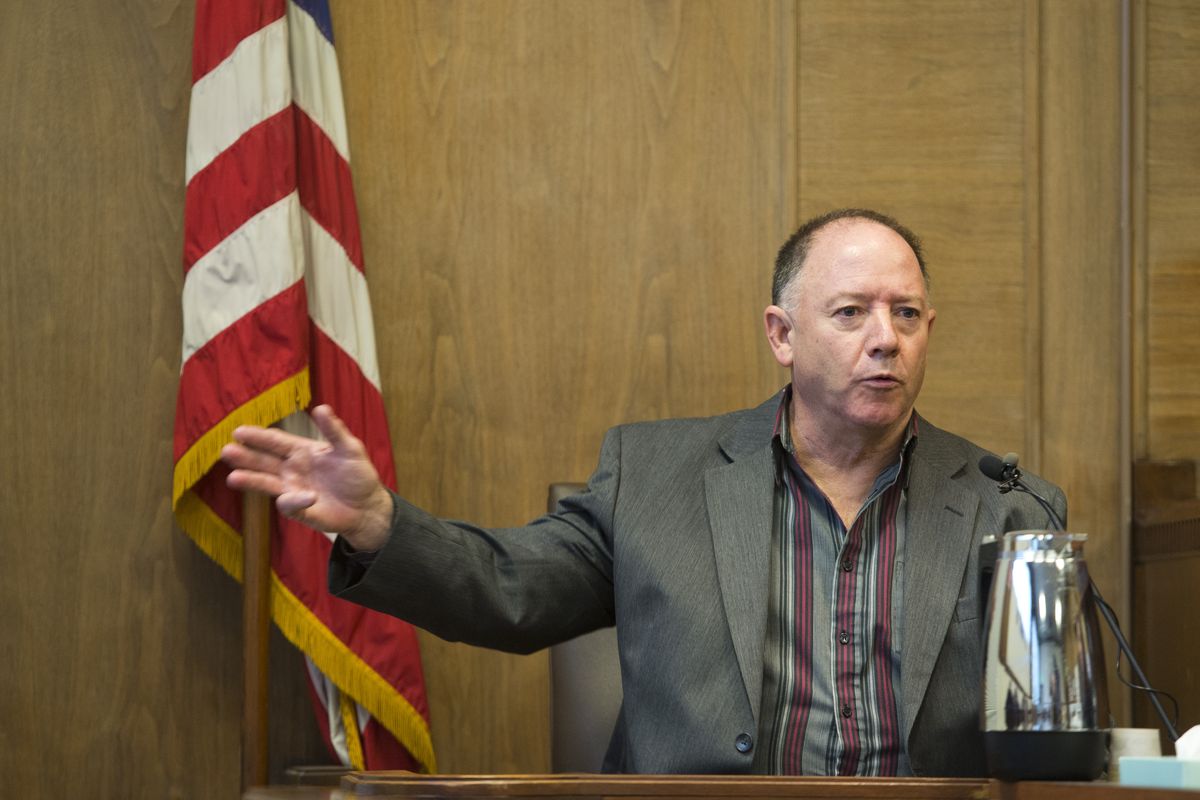Gail Gerlach talks about car thief shooting

In a Spokane courtroom Friday, Gail Gerlach described the morning of March 25 as routine, other than his wife running behind getting ready for work.
“Things were a bit hastened,” Gerlach said. “I got up and I got dressed. I brushed my teeth, and then I came back into my bedroom and I retrieved my gun, like I usually do.”
Within the next few hours, Gerlach had fired that semiautomatic pistol at the Chevrolet Suburban that had been stolen from his driveway. The single shot killed driver Brendon Kaluza-Graham, 25, almost instantly, according to the medical examiner’s report, and set into motion an investigation whose fairness was at the center of a hearing lasting into the evening Friday.
Gerlach’s defense attorneys argued that his statements made to investigating officers should not be admissible at trial because he was not adequately informed of his rights. Spokane County Deputy Prosecutor Deric Martin countered that the self-employed plumber was under no duress when he offered initial statements.
On the stand, Gerlach, 57, offered his first public statements about the incident that prompted Spokane prosecutors to seek a charge of first-degree manslaughter against him. Testimony Friday centered on two men speaking in Gerlach’s driveway moments after the Suburban crashed into a nearby garage on a chilly morning and hours before Gerlach learned he’d killed the man behind the wheel.
Spokane police Cpl. Tyler Cordis took the stand first, testifying he was the first officer to speak with Gerlach following the shooting. Cordis described Gerlach as “fidgety” when he arrived, pacing his driveway and talking excitedly, apparently to himself.
“I told him to take a few breaths, because it appeared that he was upset,” Cordis said. “I was just trying to have him calm down and relax, so I could get a little bit better statement about what had happened.”
In later testimony, Gerlach described himself as “out of sorts” in the moments following the crash.
“It’s hard to describe how I was feeling,” Gerlach said. “I was feeling like I needed to get help there.”
Defense attorney David Stevens focused on a statement Gerlach says Cordis made while the two stood in the driveway, discussing what had happened. After Gerlach gave his statement, he said, Cordis told him that if things occurred as he’d described, “everything would be fine.”
Cordis told Stevens he didn’t remember saying such a thing.
Gerlach, in turn, denied making a statement included in a report filed by Cordis: that Gerlach told Cordis “he was scared and did not know if he did the right thing.”
“No, I didn’t use those words,” Gerlach said under questioning by Martin.
Four investigative officers who responded to the shooting scene testified Friday, all saying their conversations with Gerlach at his home were cordial and informal. Gerlach also said he voluntarily submitted statements about what had happened, though the constant presence of police officers gave him the impression he was not free to leave the scene.
Stevens asked why Gerlach didn’t ask for an attorney while speaking with officers at his home.
“Understand, I’m a plumber,” Gerlach said. “I went through the 11th grade.”
Judge Annette Plese did not rule Friday if the statements were admissible, choosing to wait for testimony from the detective who formally presented Gerlach with his Miranda rights under questioning at the Police Department. The detective was not present in court Friday due to a recent surgery.
Plese also ordered a continuance in the case Friday and set a tentative trial date for the end of March. Gerlach faces up to 10 years in prison if convicted on the charge.